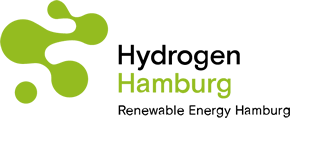Hydrogen-Project
Research Vessel Coriolis

The Coriolis will be deployable as a research vessel in versatile areas. Due to its compact size and shallow draft, it can easily navigate rivers, shallow water areas such as the Wadden Sea, but also deeper waters of the North Sea and Baltic Sea. The ship combines the expertise of the Helmholtz Zentrum Hereon in coastal, membrane and hydrogen research. Diverse and interdisciplinary research in these fields is thus also made possible on board.
There is also a laboratory on board for the fuel cells and the built-in metal hydride tank developed at Hereon. The laboratory is located in the bow area, near the propulsion system, to test the possibilities of the ship's hydrogen-based energy supply systems. It was named on 18 November 2024.
With the combination of wet and e-lab, scientists on the Coriolis can take water and sediment samples and then analyse them for content and possible pollutants. In addition, measuring probes are used from the wet laboratory and a variety of physical measurements are carried out. The preparation of the measuring probes as well as the subsequent analysis of the measurement data obtained are analysed in the E-Laboratory. Buoys can also be deployed from on board the Coriolis, as well as ground-based measuring systems such as underwater nodes and landers.
The equipment of the wet laboratory includes a hydrographic shaft with which scientific instruments can be deployed directly from inside the ship to the keel line. In addition, the laboratory is equipped with ultra-pure seawater system for trace analysis. The built-in FerryBox can be registered online and continuously measures physical, chemical and biological parameters such as oxygen concentration, salinity, temperature or pH value - during the voyage and in port. Hydroacoustic systems for current measurement (echosounder and ADCP) are provided in the bottom of the ship.



